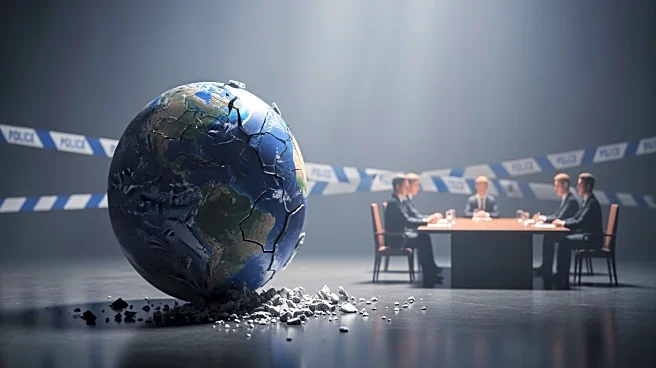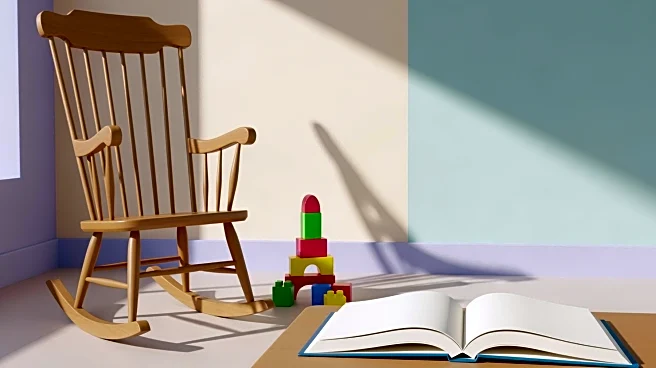What's Happening?
Russian drone and missile strikes on Ukrainian cities have resulted in the deaths of at least six people, including two children, according to President Volodymyr Zelensky. The attacks targeted energy
infrastructure and caused widespread damage, including a kindergarten in Kharkiv. This escalation comes shortly after President Trump announced the shelving of a planned summit with Russian President Vladimir Putin, citing concerns over a 'wasted meeting.' The Kremlin has rejected calls for a ceasefire, maintaining its stance against diplomatic pressure.
Why It's Important?
The continuation of Russian attacks on Ukraine underscores the ongoing conflict and its humanitarian impact. The decision by President Trump to postpone talks with Putin reflects the complexities of international diplomacy in addressing the crisis. The strikes further strain relations between Russia and Western nations, potentially influencing global political dynamics and security policies. The situation highlights the challenges in achieving a ceasefire and the broader implications for regional stability and international relations.
What's Next?
The international community may increase diplomatic efforts to pressure Russia into halting its military actions. Ukraine is likely to continue seeking military support from Western allies, including advanced weaponry. The postponement of the Trump-Putin summit may lead to alternative diplomatic engagements or increased sanctions against Russia. The humanitarian situation in Ukraine may prompt further international aid and support initiatives.
Beyond the Headlines
The ongoing conflict raises ethical questions about the impact of warfare on civilian populations, particularly children. The strikes on educational facilities highlight the long-term consequences for Ukraine's social infrastructure and future generations. The geopolitical tensions may lead to shifts in alliances and influence global security strategies.








